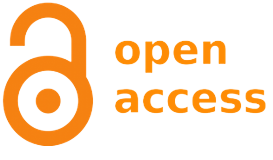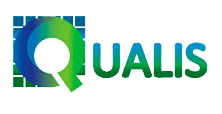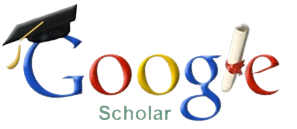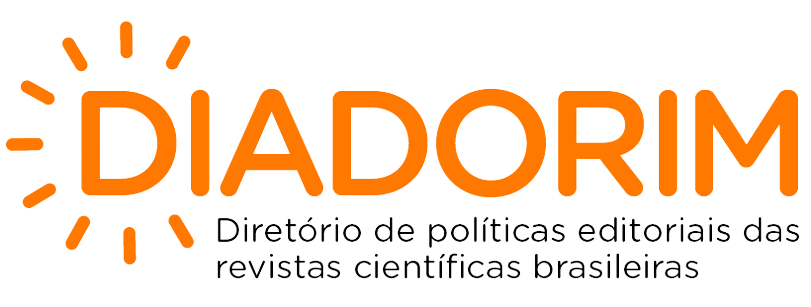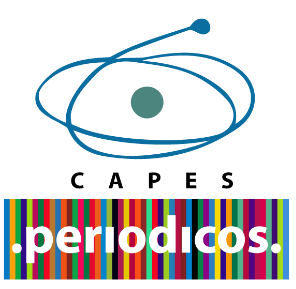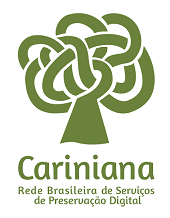The digital humanities in the perspective of emancipation
DOI:
https://doi.org/10.5433/2317-4390.2022v11n3p20Keywords:
Digital Humanities, Skills and training, EmancipationAbstract
Objective: The objective of this article is to verify, together with researchers, the problems and actions related to digital humanities, namely: how can the use of digital humanities contribute to the emancipation of subjects?
Methodology: To answer this question, we used a qualitative approach through open interviews. We used convenience sampling, in which the researcher selected experts and members of the population most accessible at the time and who are invited to the interview to discuss and answer the question script. The qualitative software MAXQDA2020 was used for the coding and analysis of the interviews.
Results: Based on dialogues with specialists, it was considered that the digital humanities, seen from the perspective of emancipation, have promising perspectives for individuals and effective contributions to society. According to qualitative analyses, digital humanities, together with the acquired skills, can help to identify fake news, which makes it possible to give subsidies to individuals to make good use of technologies and cyberspace in an empowered way.
Conclusions: However, to meet these challenges, it is necessary to create policies that encompass the entire digital humanities project, investment in technologies and, above all, in the training of individuals with the necessary skills to use networks and technologies in a critical perspective, integrative and humanistic.
Downloads
References
ADORNO, T. W. Educação e emancipação. Rio de Janeiro: Paz e Terra, 1995.
ADORNO, T. W. Educação e Emancipação. São Paulo: Paz e Terra, 2010.
ALVES, D. As Humanidades Digitais como uma comunidade de práticas dentro do formalismo académico: dos exemplos internacionais ao caso português. Ler História, [S. l.], v. 69, p. 91-103, 2016. Disponível em: https://journals.openedition.org/lerhistoria/2496#citedby. Acesso em: 25 jul. 2021.
ARAÚJO, C. A. A. Novos desafios epistemológicos para a ciência da informação. Palabra Clave, La Plata, v. 10, n. 2, p. 1-15, 2021. Disponível em: http://sedici.unlp.edu.ar/bitstream/handle/10915/119516/Documento.pdf-PDFA.pdf?sequence=1&isAllowed=y. Acesso: 29 jul. 2021.
AUSUBEL, D. P. The acquisition and retention of knowledge: a cognitive view. Lisboa: Plátano Edições Técnicas; 2000.
AUSUBEL, D. P. The psychology of meaningful verbal learning. Nova Iorque: Grune & Stratton, 1963.
BARATS, C.; SCHAFER, V.; FICKERS, A. Fading Away... The challenge of sustainability in digital studies. Digital Humanities Quarterly, [S. l.], v. 14, n. 3, p. 1-17, 2020. Disponível em: http://www.digitalhumanities.org/dhq/vol/14/3/000484/000484.html. Acesso em: 29 jul. 2021.
BARNETT, F. M. The Brave Side of Digital Humanities. Differences, [S. l.], v. 25, n. 1, p. 64-78, 2014. Disponível em: https://www.sas.upenn.edu/~cavitch/pdf-library/Barnett_BraveSide.pdf. Acesso em: 24 abr. 2021.
BERRY, D. M.; FAGERJORD, A. Digital Humanities: Knowledge and Critique in a Digital Age. Cambridge: Polity, 2017.
BROWN, J. S.; DUGUID, P. The social life of information. Boston: Harvard Business Review Press, 2000.
CAPURRO, R. Citizenship in the Digital Age. In: SAMEK, Toni; SHULTZ, Lynette. (ed.). Information ethics, globalization and citizenship: essays on ideas to praxis. Jefferson, NC: McFarland, 2017.
CAPURRO, R. Información y acción moral en el contexto de las nuevas tecnologías. In: ENCONTRO INTERNACIONAL DE INFORMAÇÃO, CONHECIMENTO, ÉTICA E AÇÃO, 7., 2011, Marília. Anais [...]. Marília: UNESP, 2011.
CAPURRO, R. Intercultural Information Ethics: Foundations and Applications. Signo pensam, Bogotá, v. 28, n. 55, p. 66-79, 2009. Disponível em: http://www.scielo.org.co/scielo.php?script=sci_arttext&pid=S0120-48232009000200004&lng=en&nrm=iso. Acesso em: 27 jul. 2021.
CAPURRO, R. Nelson Mandela as information ethicist: A dialogue. In: BESTER, C.; BRITZ, J.; CAPURRO, R.; FISCHER, R. (org.). Nelson Mandela: a reader on information ethics. Auckland Park: International Center for Information Ethics, 2021. Disponível em: https://www.i-c-i-e.org/_files/ugd/788aa6_a19c8754f562440c810b1e8dfeb50eba.pdf. Acesso em: 22 fev. 2022.
CASTELLS, M, The Rise of the Network Society. Volume I. The Information Age: Economy, society and culture. Oxford, Blackwell Publishers, 2010.
DACOS, M. Manifesto das Humanidades Digitais. ThatCamp Paris, [S. l.], mar. 2011. Disponível em: https://humanidadesdigitais.org/manifesto-das-humanidades-digitais/. Acesso em: 29 jul. 2021.
DALBELLO, M. A genealogy of digital humanities. Journal of Documentation, [S. l.], v. 67, n. 3, p. 408-506, 2011. Disponível em: https://www.emerald.com/insight/content/doi/10.1108/00220411111124550/full/html. DOI: https://doi.org/10.1108/00220411111124550. Acesso em: 24 abr. 2021.
DRUCKER, J. Sustainability and complexity: Knowledge and authority in the digital humanities. Digital Scholarship in the Humanities, [S. l.], v. 36, n. 2, p. 86-94, 2021. DOI: https://doi.org/10.1093/llc/fqab025. Acesso em: 27 jul. 2021.
FLORIDI, L. The ethics of information. Oxford: Oxford University Press, 2013.
FREIRE, P. Pedagogia da autonomia: saberes necessários à prática educativa. São Paulo: Paz e Terra, 2002.
FREIRE, P. Pedagogia do Oprimido. Porto: Afrontamento, 1975.
FROHMANN, B. A documentação rediviva: prolegômenos a uma (outra) filosofia da informação. Revista Morpheus - Estudos Interdisciplinares em Memória Social, Rio de Janeiro, n. 14, p. 227-249, 2012. Disponível em: https://seer.unirio.br/morpheus/article/view/4828. Acesso em: 27 jul. 2021.
GASKELL, G. Entrevistas individuais e de grupos. In: BAUER, M. W.; GASKELL, G. (org.). Pesquisa qualitativa com texto, imagem, e som: um manual prático. Petrópolis: Vozes, 2014. p. 64-89.
GOLD, M. K. The Digital Humanities Moment. 2012. Disponível em: https://dhdebates.gc.cuny.edu/read/untitled-88c11800-9446-469b-a3be-3fdb36bfbd1e/section/fcd2121c-0507-441b-8a01-dc35b8baeec6. Acesso em: 24 jul. 2021.
GRIMSHAW, M. Towards a manifesto for a critical digital humanities: critiquing the extractive capitalism of digital society. Palgrave Communications, [S. l.], v. 4, n. 21, p. 1-8, 2018. DOI: 10.1057/s41599-018-0075-y. Acesso em: 27 jul. 2021.
GUERREIRO, D. M.; BORBINHA, J. L. Humanidades digitais: novos desafios e oportunidades. Cadernos BAD, [S. l.], n. 1, p. 63-78, 2014. Disponível em: http://hdl.handle.net/20.500.11959/brapci/65352. Acesso em: 29 jul. 2021.
HABERMAS, J. Moral consciousness and communicative action. Cambridge: MIT Press, 1990.
HABERMAS, J. The theory of communicative action: Reason and the rationalization of society. Boston: Beacon Press, 1984. v. 1.
HOCKEY, S. The History of Humanities Computing. In: SCHREIBMAN, S.; SIEMENS, R.; UNSWORTH, J. (Ed.) A Companion to Digital Humanities. Oxford: Blackwell Publishing, 2004.
ILHARCO, F. Filosofia da Informação. Lisboa: Universidade Católica Editora, 2003.
KIRSCHENBAUM, M. G. What is digital humanities and what's it doing in english departments? ADE Bulletin, [S. l.], n. 150, p. 55-61, 2010. Disponível em: https://www.ade.mla.org/content/download/7914/225677. Acesso em: 1 jul. 2021.
LODGE, J. Info-vultures: Automated emancipation or bondage? Facing the ethical challenge. In: BESTER, C.; BRITZ, J.; CAPURRO, R.; FISCHER, R. (org.). Nelson Mandela: a reader on information ethics. Auckland Park: International Center for Information Ethics, 2021. Disponível em: https://www.i-c-i-e.org/_files/ugd/788aa6_a19c8754f562440c810b1e8dfeb50eba.pdf. Acesso em: 22 fev. 2022.
MINAYO, M. C. S. O desafio do conhecimento científico: pesquisa qualitativa em saúde. 2. ed. São Paulo/Rio de Janeiro: Hucitec/Abrasco, 1993.
MINAYO, M. C. S. Pesquisa social: teoria, método e criatividade. Petrópolis: Vozes, 2011.
NOVAK, J. D. Learning, creating, and using knowledge: Concept maps as facilitative tools in schools and corporations. Nova Iorque: Routledge, 1998.
OLIVEIRA, L. F. R.; MARTINS, D. L. O Estado da Arte em Pesquisas sobre Humanidades Digitais no Brasil. PRACS: Revista Eletrônica de Humanidades do Curso de Ciências Sociais da UNIFAP, Macapá, v. 10, n. 1, p. 9-20, jan./jun. 2017. DOI: 10.18468/pracs.2017v10n1.p09-20. Disponível em: https://periodicos.unifap.br/index.php/pracs/article/view/2635/felipev10n1.pdf. Acesso em: 25 jul. 2021.
ORTEGA, N. R. Five central concepts to think of Digital Humanities as a new digital humanism project. Artnodes, [S. l.], n. 22, p. 1-6, 2018. DOI: http://dx.doi.org/10.7238/a.v0i22.3263. Acesso em: 27 jul. 2021.
REICHERT, R. Digital Humanities. Infotheca, [S. l.], v. 15, n. 2, Apr. 2015. Disponível em: http://infoteka.bg.ac.rs/pdf/Eng/2014-2/Eng2014-2INFOTHECA_XV_2_april_22-34.pdf. Acesso em: 27 jul. 2021.
ROWLANDS, M. Towards a Post-Humanist Theory of Value. In: The Environmental Crisis. Londres: Palgrave Macmillan, 2000. p. 139-160.
SAVOLAINEN, R. Everyday information practices: a social phenomenological perspective. Plymouth: Scarecrow, 2008.
SVENSSON, P. Envisioning the digital humanities. Digital Humanities Quarterly, [S. l.], v. 6, n. 1, 2012. Disponível em: http://www.digitalhumanities.org/dhq/vol/6/1/000112/000112.html. Acesso em: 04 jul. 2021.
TUOMINEN, K.; TALJA, S.; SAVOLAINEN, R. The social constructionist viewpoint on information practices. In: FISHER, E.; ERDELEZ S.; MCKECHNIE, L. (Ed.) Theories of information behavior. Medford: Information Today, 2005. p. 328-333.
WILKINSON, M. D. et al. The FAIR Guiding Principles for scientific data management and stewardship. Scientific data, [S. l.], v. 3, n. 1, p. 1-9, 2016. DOI: 10.1038/sdata.2016.18. Disponível em: . Acesso em: 27 jul. 2021.
WRIGHT, K. Personal knowledge management: supporting individual knowledge worker performance. Knowledge management research & practice, [S. l.], v. 3, n. 3, p. 156-165, 2005. DOI: https://doi.org/10.1057/palgrave.kmrp.8500061. Acesso em: 27 jul. 2021.
YOO, Y.; BOLAND JR., R. J.; LYYTINEN, K.; MAJCHRZAK, A. Organizing for innovation in the digitized world. Organization science, [S. l.], v. 23, n. 5, p. 1398-1408, Sep./Oct. 2012. Disponível em: https://www.jstor.org/stable/23252314. Acesso em: 27 jul. 2021.
ZUBOFF, S. In the age of the smart machine: The future of work and power. Nova Iorque: Basic Books, 1988.
Downloads
Published
How to Cite
Issue
Section
License
Copyright (c) 2024 Informação@Profissões

This work is licensed under a Creative Commons Attribution 4.0 International License.
A revista se reserva o direito de efetuar, nos originais, alterações de ordem normativa, ortográfica e gramatical, com vistas a manter o padrão culto da língua e a credibilidade do veículo. Respeitará, no entanto, o estilo de escrever dos autores. Alterações, correções ou sugestões de ordem conceitual serão encaminhadas aos autores, quando necessário.
O conteúdo dos textos e a citação e uso de imagens submetidas são de inteira responsabilidade dos autores.
Os trabalhos publicados passam a ser propriedade da revista Informação& Profissões, ficando sua reimpressão total ou parcial sujeita a autorização expressa da revista. Em todas as citações posteriores, deverá ser consignada a fonte original de publicação, no caso a Informação&Profissões.




